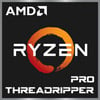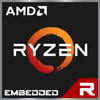
Intel Core i7-10700 Benchmark, Test and specs
Last updated:
The Intel Core i7-10700 has 8 cores with 16 threads and is based on the 10. gen of the Intel Core i7 series. The processor uses a mainboard with the LGA 1200 socket and was released in Q2/2020. The Intel Core i7-10700 scores 1,267 points in the Geekbench 5 single-core benchmark. In the Geekbench 5 multi-core benchmark, the result is 8,945 points.

| Name: | Intel Core i7-10700 |
|---|---|
| Family: | Intel Core i7 (298) |
| CPU group: | Intel Core i 10000 (43) |
| Architecture: | Comet Lake S |
| Segment: | Desktop / Server |
| Generation: | 10 |
| Predecessor: | Intel Core i7-9700 |
| Successor: | Intel Core i7-11700 |
CPU Cores and Base Frequency
The Intel Core i7-10700 has 8 CPU cores and can calculate 16 threads in parallel. The clock frequency of the Intel Core i7-10700 is 2.90 GHz (4.80 GHz). The number of CPU cores greatly affects the speed of the processor and is an important performance indicator.
| CPU Cores / Threads: | 8 / 16 |
|---|---|
| Core architecture: | normal |
| Cores: | 8x |
| Hyperthreading / SMT: | Yes |
|---|---|
| Overclocking: | No |
| Frequency: | 2.90 GHz |
| Turbo Frequency (1 Core): | 4.80 GHz |
| Turbo Frequency (8 Cores): | 4.60 GHz |
Internal Graphics
The Intel Core i7-10700 has integrated graphics, called iGPU for short. Specifically, the Intel Core i7-10700 uses the Intel UHD Graphics 630, which has 192 texture shaders and 24 execution units. The iGPU uses the system's main memory as graphics memory and sits on the processor's die.
| GPU name: | Intel UHD Graphics 630 |
|---|---|
| GPU frequency: | 0.35 GHz |
| GPU (Turbo): | 1.20 GHz |
| Compute units: | 24 |
| Shader: | 192 |
| Hardware Raytracing: | No |
| Release date: | Q4/2017 |
| Max. displays: | 3 |
|---|---|
| Generation: | 9.5 |
| Direct X: | 12 |
| Technology: | 14 nm |
| Max. GPU Memory: | 64 GB |
| Frame Generation: | No |
Hardware codec support
A photo or video codec that is accelerated in hardware can greatly accelerate the working speed of a processor and extend the battery life of notebooks or smartphones when playing videos.
| h265 / HEVC (8 bit): | Decode / Encode |
|---|---|
| h265 / HEVC (10 bit): | Decode / Encode |
| h264: | Decode / Encode |
| VP8: | Decode / Encode |
| VP9: | Decode / Encode |
| AV1: | No |
|---|---|
| AVC: | Decode / Encode |
| VC-1: | Decode |
| JPEG: | Decode / Encode |
Memory & PCIeThe processor can use up to 128 GB memory in 2 (Dual Channel) memory channels. The maximum memory bandwidth is 46.9 GB/s. The memory type as well as the amount of memory can greatly affect the speed of the system. |
|
| Memory type: | Memory bandwidth: |
|---|---|
| DDR4-2933 | 46.9 GB/s |
| Max. Memory: | 128 GB |
| Memory channels: | 2 (Dual Channel) |
| ECC: | No |
| PCIe: | 3.0 x 16 |
| PCIe Bandwidth: | 15.8 GB/s |
Thermal ManagementThe thermal design power (TDP for short) of the processor is 65 W. The TDP specifies the necessary cooling solution that is required to cool the processor sufficiently. The TDP usually gives a rough idea of the actual power consumption of the CPU. |
|
|---|---|
| TDP (PL1 / PBP): | 65 W |
| TDP (PL2): | -- |
| TDP up: | -- |
| TDP down: | -- |
| Tjunction max.: | 100 °C |
Technical details
The Intel Core i7-10700 is made in 14 nm. The smaller the manufacturing process of a CPU, the more modern and energy-efficient it is. Overall, the processor has 16.00 MB cache. A large cache can greatly speed up the processor's speed in some cases such as games.
| Technology: | 14 nm |
|---|---|
| Chip design: | Monolithic |
| Socket: | LGA 1200 |
| L2-Cache: | -- |
| L3-Cache: | 16.00 MB |
| AES-NI: | Yes |
| Operating systems: | Windows 10, Windows 11, Linux |
| Virtualization: | VT-x, VT-x EPT, VT-d |
|---|---|
| Instruction set (ISA): | x86-64 (64 bit) |
| ISA extensions: | SSE4.1, SSE4.2, AVX2 |
| Release date: | Q2/2020 |
| Release price: | 323 $ |
| Part Number: | -- |
| Documents: | Technical data sheet |
Rate this processor
Benchmark results

The benchmark results for the Intel Core i7-10700 have been carefully checked by us. We only publish benchmark results that have been created by us or that have been submitted by a visitor and then checked by a team member. All results are based on and fullfill our benchmark guidelines.
Cinebench R23 (Single-Core)
Cinebench R23 is the successor of Cinebench R20 and is also based on the Cinema 4 Suite. Cinema 4 is a worldwide used software to create 3D forms. The single-core test only uses one CPU core, the amount of cores or hyperthreading ability doesn't count.

|
AMD Ryzen 5 PRO 4650G
6C 12T @ 4.30 GHz |
||

|
AMD Ryzen 7 4980U
8C 16T @ 4.40 GHz |
||

|
Intel Core i5-8600K
6C 6T @ 4.30 GHz |
||
|
|
Intel Core i7-10700
8C 16T @ 4.80 GHz |
||

|
Intel Core i7-10700F
8C 16T @ 4.80 GHz |
||

|
Intel Core i3-7350K
2C 4T @ 4.20 GHz |
||

|
AMD Ryzen 5 3600
6C 12T @ 4.20 GHz |
||
Cinebench R23 (Multi-Core)
Cinebench R23 is the successor of Cinebench R20 and is also based on the Cinema 4 Suite. Cinema 4 is a worldwide used software to create 3D forms. The multi-core test involves all CPU cores and taks a big advantage of hyperthreading.

|
Intel Core i7-11850H
8C 16T @ 3.60 GHz |
||

|
Intel Core i9-11900H
8C 16T @ 3.60 GHz |
||

|
Intel Core i9-11900KB
8C 16T @ 4.90 GHz |
||
|
|
Intel Core i7-10700
8C 16T @ 4.60 GHz |
||

|
Intel Core i7-10700F
8C 16T @ 4.60 GHz |
||

|
Intel Core i9-9900
8C 16T @ 4.00 GHz |
||

|
Intel Core i7-11800H
8C 16T @ 3.40 GHz |
||
Geekbench 5, 64bit (Single-Core)
Geekbench 5 is a cross plattform benchmark that heavily uses the systems memory. A fast memory will push the result a lot. The single-core test only uses one CPU core, the amount of cores or hyperthreading ability doesn't count.

|
Intel Xeon Gold 5317
12C 24T @ 3.60 GHz |
||

|
Intel Xeon Silver 4309Y
8C 16T @ 3.60 GHz |
||

|
Intel Xeon W-2245
8C 16T @ 4.70 GHz |
||
|
|
Intel Core i7-10700
8C 16T @ 4.80 GHz |
||

|
Google Tensor G3
8C 8T @ 2.91 GHz |
||

|
Intel Core i7-10700F
8C 16T @ 4.80 GHz |
||

|
AMD Ryzen Threadripper PRO 3995WX
64C 128T @ 4.20 GHz |
||
Geekbench 5, 64bit (Multi-Core)
Geekbench 5 is a cross plattform benchmark that heavily uses the systems memory. A fast memory will push the result a lot. The multi-core test involves all CPU cores and taks a big advantage of hyperthreading.

|
Intel Core i7-6950X
10C 20T @ 3.50 GHz |
||

|
Intel Core i5-12500
6C 12T @ 4.00 GHz |
||

|
Intel Core i7-11800H
8C 16T @ 3.40 GHz |
||
|
|
Intel Core i7-10700
8C 16T @ 4.60 GHz |
||

|
Intel Core i7-10700F
8C 16T @ 4.60 GHz |
||

|
AMD Ryzen 7 6800HS
8C 16T @ 3.60 GHz |
||

|
Intel Xeon W-10885M
8C 16T @ 4.20 GHz |
||
Geekbench 6 (Single-Core)
Geekbench 6 is a benchmark for modern computers, notebooks and smartphones. What is new is an optimized utilization of newer CPU architectures, e.g. based on the big.LITTLE concept and combining CPU cores of different sizes. The single-core benchmark only evaluates the performance of the fastest CPU core, the number of CPU cores in a processor is irrelevant here.

|
AMD EPYC 7763
64C 128T @ 3.50 GHz |
||

|
Intel Xeon W-2265
12C 24T @ 4.80 GHz |
||

|
AMD Ryzen 5 3600X
6C 12T @ 4.40 GHz |
||
|
|
Intel Core i7-10700
8C 16T @ 4.80 GHz |
||

|
Intel Core i7-10700F
8C 16T @ 4.80 GHz |
||

|
Intel Xeon Silver 4314
16C 32T @ 3.40 GHz |
||

|
Intel Xeon W-2275
14C 28T @ 4.80 GHz |
||
Geekbench 6 (Multi-Core)
Geekbench 6 is a benchmark for modern computers, notebooks and smartphones. What is new is an optimized utilization of newer CPU architectures, e.g. based on the big.LITTLE concept and combining CPU cores of different sizes. The multi-core benchmark evaluates the performance of all of the processor's CPU cores. Virtual thread improvements such as AMD SMT or Intel's Hyper-Threading have a positive impact on the benchmark result.

|
Intel Xeon E5-2690 v4
14C 28T @ 3.00 GHz |
||

|
Intel Core i3-13100
4C 8T @ 4.10 GHz |
||

|
Intel Core i3-13100F
4C 8T @ 4.10 GHz |
||
|
|
Intel Core i7-10700
8C 16T @ 4.60 GHz |
||

|
Intel Xeon E-2278G
8C 16T @ 3.60 GHz |
||

|
Intel Core i7-10700F
8C 16T @ 4.60 GHz |
||

|
Intel Xeon E5-2697 v3
14C 28T @ 3.10 GHz |
||
Cinebench R20 (Single-Core)
Cinebench R20 is the successor of Cinebench R15 and is also based on the Cinema 4 Suite. Cinema 4 is a worldwide used software to create 3D forms. The single-core test only uses one CPU core, the amount of cores or hyperthreading ability doesn't count.

|
AMD Ryzen 7 4700
8C 16T @ 4.40 GHz |
||

|
AMD Ryzen 7 4700G
8C 16T @ 4.40 GHz |
||

|
AMD Ryzen 7 PRO 4750G
8C 16T @ 4.40 GHz |
||
|
|
Intel Core i7-10700
8C 16T @ 4.80 GHz |
||

|
Intel Core i7-10870H
8C 16T @ 5.00 GHz |
||

|
Intel Core i7-10700F
8C 16T @ 4.80 GHz |
||

|
Intel Core i7-7820X
8C 16T @ 4.50 GHz |
||
Cinebench R20 (Multi-Core)
Cinebench R20 is the successor of Cinebench R15 and is also based on the Cinema 4 Suite. Cinema 4 is a worldwide used software to create 3D forms. The multi-core test involves all CPU cores and taks a big advantage of hyperthreading.

|
Intel Core i7-11800H
8C 16T @ 3.40 GHz |
||

|
Intel Xeon E5-2643 v4
6C 12T @ 3.60 GHz |
||

|
Intel Core i9-9900X
10C 20T @ 4.30 GHz |
||
|
|
Intel Core i7-10700
8C 16T @ 4.60 GHz |
||

|
AMD Ryzen 7 4700
8C 16T @ 3.60 GHz |
||

|
AMD Ryzen 7 PRO 4750G
8C 16T @ 4.00 GHz |
||

|
AMD Ryzen 7 4700G
8C 16T @ 4.00 GHz |
||
iGPU - FP32 Performance (Single-precision GFLOPS)
The theoretical computing performance of the internal graphics unit of the processor with simple accuracy (32 bit) in GFLOPS. GFLOPS indicates how many billion floating point operations the iGPU can perform per second.

|
AMD A8-3800
AMD Radeon HD 6550D @ 0.60 GHz |
||

|
Qualcomm Snapdragon 820
Qualcomm Adreno 530 @ 0.62 GHz |
||

|
Qualcomm Snapdragon 821
Qualcomm Adreno 530 @ 0.62 GHz |
||
|
|
Intel Core i7-10700
Intel UHD Graphics 630 @ 1.20 GHz |
||

|
Intel Core i9-10880H
Intel UHD Graphics 630 @ 1.20 GHz |
||

|
AMD Ryzen Embedded R2312
AMD Radeon RX Vega 3 (Raven Ridge) @ 1.20 GHz |
||

|
AMD Ryzen 3 5125C
AMD Radeon RX Vega 3 (Raven Ridge) @ 1.20 GHz |
||
Blender 3.1 Benchmark
In the Blender Benchmark 3.1, the scenes "monster", "junkshop" and "classroom" are rendered and the time required by the system is measured. In our benchmark we test the CPU and not the graphics card. Blender 3.1 was presented as a standalone version in March 2022.

|
AMD Ryzen 7 3800X
8C 16T @ 4.20 GHz |
||

|
AMD Ryzen 7 5800HS
8C 16T @ 3.50 GHz |
||

|
Apple M1 Pro (8-CPU)
8C 8T @ 3.20 GHz |
||
|
|
Intel Core i7-10700
8C 16T @ 4.60 GHz |
||

|
Intel Core i7-10700F
8C 16T @ 4.60 GHz |
||

|
Intel Core i5-12500
6C 12T @ 4.00 GHz |
||

|
AMD Ryzen 7 PRO 5750GE
8C 16T @ 3.60 GHz |
||
Estimated results for PassMark CPU Mark
Some of the CPUs listed below have been benchmarked by CPU-monkey. However the majority of CPUs have not been tested and the results have been estimated by a CPU-monkey’s secret proprietary formula. As such they do not accurately reflect the actual Passmark CPU mark values and are not endorsed by PassMark Software Pty Ltd.

|
AMD Ryzen 7 4800U
8C 16T @ 3.20 GHz |
||

|
Intel Core i5-1334U
10C 12T @ 1.30 GHz |
||

|
Intel Core i5-12500TE
6C 12T @ 3.00 GHz |
||
|
|
Intel Core i7-10700
8C 16T @ 4.60 GHz |
||

|
Intel Core i7-10700F
8C 16T @ 4.60 GHz |
||

|
Intel Core i9-9900
8C 16T @ 4.00 GHz |
||

|
AMD Ryzen 5 PRO 6650U
6C 12T @ 3.80 GHz |
||
CPU-Z Benchmark 17 (Single-Core)
The CPU-Z benchmark measures a processor's performance by measuring the time it takes the system to complete all benchmark calculations. The faster the benchmark is completed, the higher the score.

|
Intel Core i9-9900K
8C 16T @ 4.70 GHz |
||

|
Intel Core i5-10600KF
6C 12T @ 4.50 GHz |
||

|
Intel Core i5-9600KF
6C 6T @ 4.30 GHz |
||
|
|
Intel Core i7-10700
8C 16T @ 4.60 GHz |
||

|
Intel Core i5-10600K
6C 12T @ 4.50 GHz |
||

|
AMD Ryzen 9 3900X
12C 24T @ 4.00 GHz |
||

|
Intel Core i7-10700F
8C 16T @ 4.60 GHz |
||
CPU-Z Benchmark 17 (Multi-Core)
The CPU-Z benchmark measures a processor's performance by measuring the time it takes the system to complete all benchmark calculations. The faster the benchmark is completed, the higher the score.

|
AMD Ryzen 9 5900HS
8C 16T @ 3.00 GHz |
||

|
Intel Core i9-9820X
10C 20T @ 3.30 GHz |
||

|
Intel Xeon E-2288G
8C 16T @ 3.70 GHz |
||
|
|
Intel Core i7-10700
8C 16T @ 2.90 GHz |
||

|
Intel Core i7-10700F
8C 16T @ 2.90 GHz |
||

|
AMD Ryzen 7 5800H
8C 16T @ 3.20 GHz |
||

|
Intel Core i9-11950H
8C 16T @ 2.60 GHz |
||
Cinebench R15 (Single-Core)
Cinebench R15 is the successor of Cinebench 11.5 and is also based on the Cinema 4 Suite. Cinema 4 is a worldwide used software to create 3D forms. The single-core test only uses one CPU core, the amount of cores or hyperthreading ability doesn't count.

|
Intel Core i5-11400
6C 12T @ 4.40 GHz |
||

|
Intel Core i5-10600K
6C 12T @ 4.80 GHz |
||

|
Intel Core i5-10600KF
6C 12T @ 4.80 GHz |
||
|
|
Intel Core i7-10700
8C 16T @ 4.80 GHz |
||

|
Intel Core i5-1235U
10C 12T @ 4.40 GHz |
||

|
Intel Xeon E-2286G
6C 6T @ 4.90 GHz |
||

|
Intel Xeon E-2274G
4C 8T @ 4.90 GHz |
||
Cinebench R15 (Multi-Core)
Cinebench R15 is the successor of Cinebench 11.5 and is also based on the Cinema 4 Suite. Cinema 4 is a worldwide used software to create 3D forms. The multi-core test involves all CPU cores and taks a big advantage of hyperthreading.

|
Intel Xeon Gold 6130
16C 32T @ 2.60 GHz |
||

|
Intel Xeon Gold 6130F
16C 32T @ 2.60 GHz |
||

|
Intel Xeon Gold 6130T
16C 32T @ 2.60 GHz |
||
|
|
Intel Core i7-10700
8C 16T @ 4.60 GHz |
||

|
Intel Core i7-10700F
8C 16T @ 4.60 GHz |
||

|
AMD Ryzen 9 6900HS
8C 16T @ 3.80 GHz |
||

|
Intel Xeon W-2255
10C 20T @ 4.40 GHz |
||
Benchmarks

Cinebench R23 (SC)
586 entries
586 entries

Cinebench R23 (MC)
565 entries
565 entries

Geekbench 5 (SC)
2,488 entries
2,488 entries

Geekbench 5 (MC)
2,461 entries
2,461 entries

Geekbench 6 (SC)
1,755 entries
1,755 entries

Geekbench 6 (MC)
1,703 entries
1,703 entries

Cinebench R20 (SC)
656 entries
656 entries

Cinebench R20 (MC)
604 entries
604 entries

FP32 SP (iGPU)
2,042 entries
2,042 entries

3DMark Timespy (iGPU)
516 entries
516 entries

Blender 3.1 Benchmark
212 entries
212 entries

PassMark CPU-Mark
2,392 entries
2,392 entries

CPU-Z Benchmark 17 (SC)
231 entries
231 entries

CPU-Z Benchmark 17 (MC)
733 entries
733 entries

Monero Hashrate
94 entries
94 entries

Cinebench R15 (SC)
1,106 entries
1,106 entries

Cinebench R15 (MC)
1,101 entries
1,101 entries
Description of the processor
Intels Core i7-10700 is an 8-core processor that can process 16 threads simultaneously (Hyper-Threading). The desktop processors base clock is 2.9 GHz. In multi-core Turbo, the Intel Core i7-10700 can operate with up to 4.6 GHz. A single core can clock a bit higher with 4.8 GHz.The 10th generation of Intel Core i processors is based on the Comet Lake architecture, which is still manufactured in a much improved 14 nm process at Intel. The processor has a 16 MB level 3 cache and has a TDP of 65 watts. However, the processors energy consumption is around 150 watts under full load of all cores in practice.
The Intel Core i7-10700 can address up to 128 GB of working memory (DDR4-2933) in two memory channels. The processor requires a motherboard with the LGA 1200 socket, which will be introduced in 2020. This socket has more contacts than the older LGA 1151-2 socket and is supposed to support up to 10 cores. Intel is also said to have paid attention to better stability in the power supply.
The iGPU in the Comet Lake processors is still the somewhat older Intel UHD Graphics 630 with 24 execution units from 2017. The iGPU clocks the Intel Core i7-10700 with up to 1.2 GHz, which is the maximum clock of the iGPU. The computing power (FP32) of the internal graphics card is 461 GFLOPS, which is not really much in 2020. However, the graphics cards performance is sufficient for older games in Full HD resolution. Gaming PCs are equipped with a dedicated graphics card anyway.
The Intel Core i7-10700 was introduced in the 2nd quarter of 2020. The processor is not overclockable, but it is also available with a free multiplier in another variant (Intel Core i7-10700K). Furthermore, the processor is also available without an internal graphics card as Intel Core i7-10700F at a slightly lower price.
Popular comparisons
back to index




